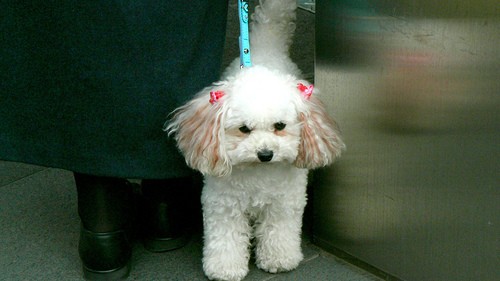
Kennel cough (a.k.a. Acute or Infectious Tracheobronchitis) is the most commonly diagnosed respiratory disease of dogs.
Because it is such a highly contagious disease, at some point in its life, your dog will probably be exposed to kennel cough. While it is rarely a life-threatening disease, you should take precautions to minimise your pet’s chances of contracting kennel cough.
What causes kennel cough?
Kennel cough is caused by airborne organisms that infect the upper respiratory tract and trachea of the dog. There are a number of infectious agents that have been implicated as causal factors in cases of kennel cough. It is often difficult to determine which organism actually resulted in a particular case of kennel cough.
The most common infectious organisms include:
• Bordetella bronchiseptica (bacteria)
• Parainfluenza III (virus)
• Canine distemper virus
• Canine adenovirus
• Canine herpes virus
• Mycoplasma organisms
Do dogs catch kennel cough from being in a kennel?
Kennel cough infections are not isolated to kennels. They usually occur in any place where dogs congregate, such as shelters, kennels, pet shops, and research facilities, especially when there are less than ideal hygienic conditions. Infective material is spread through direct contact with sick dogs, inhalation of aerosolized respiratory secretions, or indirectly via people and inanimate objects.
What are the symptoms of kennel cough?
• Persistent harsh, non-productive coughing
• Fever
• Depression or lethargy
• Loss of appetite
• Discharge from nose and/or eyes
While coughing is usually the predominant sign of illness, your dog may manifest any of the above symptoms depending on the severity of disease. Uncomplicated cases can appear otherwise healthy besides a persistent cough, whereas more severe cases may develop pneumonia. If you are concerned that your pet has kennel cough, isolate it from other dogs and contact a veterinarian.
How does the veterinarian diagnose kennel cough?
Kennel cough can usually be diagnosed based on any relevant history (e.g. vaccination status, time spent in a kennel) and a physical examination. However, the vet may need to perform further diagnostics such as a blood test, chest x-rays, and even bronchoscopy for complicated cases.
Does my dog need to be treated with antibiotics?
Kennel cough is a self-limiting disease, so not all cases require antibiotics. For instance, most mild cases will resolve in about 2-3 weeks without treatment. However, judicious use of antibiotics can speed up recovery, and are recommended for more severe cases.
Other treatment options include:
• Exercise restriction (for at least 2-3 weeks)
• Cough medicine (only used medicines prescribed by a vet!)
• Steam treatment or nebulisation with saline
• Avoidance of dusty environments
How can I prevent my dog from catching kennel cough?
There are several vaccines currently available for the prevention of kennel cough. Ask your veterinarian about getting your dog vaccinated – while most dogs are automatically vaccinated against distemper, they will require a separate intranasal vaccine for other kennel cough agents, such as Bordetella bronchiseptica.
Many kennels are now requiring that dogs are vaccinated against kennel cough before being boarded there. Keep in mind that it usually takes at least a couple of weeks before the vaccine is effective, so plan ahead.
Lastly, kennel cough is a highly contagious disease. If your dog is diagnosed with kennel cough, it should be isolated from other susceptible animals. Unfortunately many infected animals are capable of transmitting the disease before they begin to show any signs of illness.
Myth – My dog can’t get kennel cough because I had him vaccinated!
While kennel cough vaccines are very effective, vaccination is not a guarantee against infection. There is not a vaccine available that protects against all of the causative agents of kennel cough. A kennel cough vaccine will usually protect against only one of the most common agents (e.g. Bordetella), so occasionally vaccinated dogs will come down with a kennel cough infection anyway.
(photo: cloneofsnake)